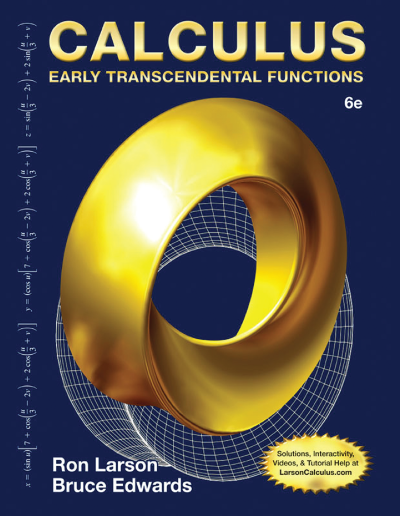Augustin-Louis Cauchy
(1789 0 1857)
Augustin-Louis Cauchy was born in Paris on August 21, 1789, in the midst of political turmoil. There could not have been a less auspicious time for his arrival, given his family’s place in Parisian society. Cauchy’s father, Louis-François Cauchy, was a brilliant scholar and lawyer who rose to prominence as principal assistant to Louis Thiroux de Crosne, the Lieutenant Général de Police of Paris. Louis-François enforced laws regulating theaters and booksellers, and controlled the state prisons. Marie-Madeleine Desestre Cauchy, Augustin- Louis’s mother, was of a prosperous and well-established family that treasured its ties to the aristocracy.
A month before Augustin-Louis’s birth, French insurgents had stormed the Bastille and murdered leaders of the royal administration. The revolutionists stripped de Crosne of his power; soon thereafter, he fled to England for asylum. The elder Cauchy was left without protection and employment.
Louis-François Cauchy eventually found work as Chief of the Bureau of Almshouses and Charity Workshops, a position he held until 1794. In April of that year, de Crosne, Cauchy’s former employer, returned to France after five years of exile in England and was promptly executed. Cauchy, recognizing that he and his family were in danger, sought refuge at their country home in Arcueil, in the rue des Carnaux. There, the Cauchys were safe from the threat of death at the hands of revolutionists; they faced instead the threat of death by starvation. Subsisting on rice, bread, and crackers, they waited out the Reign of Terror.
Augustin-Louis Cauchy, surrounded since birth by fear and uncertainty, was a frail and pensive child. His refuge was study; in this, he found an ally in his father, whose keen interest in his son’s intellectual development was the cornerstone of their relationship. Louis-François was his son’s first teacher; he imbued Augustin Louis with his own love of Latin and Greek, and his staunch devotion to the Roman Catholic faith. Louis-François and his son shared an interest in poetry and natural history, and a blinding hatred of revolutionary forces.
The fall of Robespierre, chief inaugurator of the Reign of Terror, allowed the Cauchys to return to Paris. Louis-François obtained an administrative post at an attractive salary that restored his family’s financial security. Augustin-Louis entered the École Centrale du Panthéon, from which he graduated with distinction at the age of fifteen. He then attended the École Polytechnique and later the École des Ponts et Chaussées, where he prepared for a career in civil engineering.
Augustin-Louis left school in 1809 to work on the Ourcq Canal and the Saint-Cloud Bridge. In 1810, he journeyed to Cherbourg, where Napoleon was building a naval base from which to launch an attack on England. Cauchy returned to Paris in 1813, claiming that ill health prohibited him from completing his work on the project. He allowed himself to be persuaded by friends, mathematicians Joseph Louis Lagrange and Pierre-Simon de Laplace, to return to his first love, the less physically demanding discipline of pure mathematics.
By 1816, Cauchy had been appointed a full professor at his alma mater, the École Polytechnique. Each week he submitted papers to the French Academy, in which he detailed his theory of elasticity and his discoveries in number theory, optics, mechanics, and astronomy. Cauchy was a staunch champion of mathematical rigor, and advanced the field of analysis with his treatment of derivatives, integrals, continuous functions, limits, and infinite series. He is perhaps best known for his theory of functions of a complex variable.
So prodigious was Cauchy’s output that it was exceeded only by that of the formidable Euler. Eventually, the Academy was forced to adopt a resolution restricting the number of articles a member could submit each year for publication.
In 1818, Cauchy married Aloîse de Bure, the daughter of one of his publishers. He lived quietly in Paris with his wife and their two daughters until the July Revolution of 1830. Louis-Phillippe, the Orléans king of the bourgeoisie, replaced Charles X, the Bourbon king. Cauchy, ever the vehement royalist, refused to take the oath of allegiance that would allow him to retain his position as professor; in fact, he rather melodramatically and capriciously left his family for voluntary exile, first in Turin, Italy, and then in Prague. Charles X rewarded Cauchy for his loyalty by naming him a baron.
Cauchy continued to publish, often at his own expense, while in exile. He was apparently obsessed with mathematics and was eager to share his every thought. He wrote hastily, and not always accurately. On one occasion, for example, he presented to the French Academy a seriously flawed proof of Fermat’s now proven Last Theorem. He was also in the habit of forgetting what papers he had previously submitted, and to whom he had sent them. That notwithstanding, there are more concepts and theorems named for Cauchy than for any other mathematician in history.
Cauchy was reunited with his family in Paris in 1838. Though continually haunted by the specter of the oath of allegiance, he resumed his activities at the French Academy, and eventually obtained a professional appointment at the Collége de France.
Cauchy died in Sceaux, near Paris, in May 1857, at the age of sixty-eight.
Links
http://www-history.mcs.st-andrews.ac.uk/Biographies/Cauchy.html
http://www.famous-mathematicians.com/augustin-louis-cauchy/
References
- Asimov, Isaac. Asimov’s Biographical Encyclopedia of Science and Technology. Garden City, New York: Doubleday & Company, Inc., 1972.
- Ball, W. W. Rouse. A Short Account of the History of Mathematics. 1908. Reprint. New York: Dover Publications, Inc., 1960.
- Belhoste, Bruno. Augustin-Louis Cauchy: A Biography. Translated by Frank Ragland. New York: Springer-Verlag, 1991.
- Boyer, Carl B. A History of Mathematics. 2d ed., rev. Uta C. Merzbach. New York: John Wiley & Sons, Inc., 1991.
- Gillispie, Charles Coulston, ed. Dictionary of Scientific Biography. Vol. III. New York: Charles Scribner’s Sons, 1971.
- Hollingdale, Stuart. Makers of Mathematics. London: The Penguin Group, 1989.
- Simmons, George F. Calculus Gems: Brief Lives and Memorable Mathematics. New York: McGraw-Hill, Inc., 1992.











